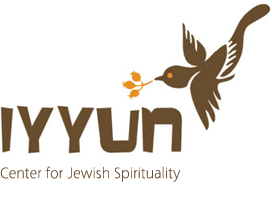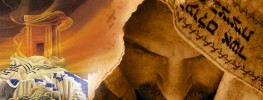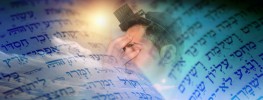During the recitation of the Amidah between Rosh Hashanah and Yom Kippur, there are additions in the prayers.
This short addition called zahrienu or “remember us” contains the unholy number of eleven words signifying the eradication of forgetfulness. The holy number is ten, as in the Ten Sefirot (the ten spheres/channels of Divine energy through which God created the vessels of this world and which continue to permeate all existence).
In the holy (kedusha), there is a full integration of the Divine light within the vessels; however, in the unholy (kelipa), the Divine light does not fully permeate the vessel and remains detached and separate. Therefore, there are ten vessels plus the light, comprising the number eleven.
In the world of kedusha, which signifies full integration, there is no forgetfulness. In fact, there is no lapse of time, as all time is one unified whole. It is a world of no separation, and thus the past is as present as the future. It is only in the realm of kelipa, a world of separation and disunity, that the past becomes separate from the present and future, and there is forgetfulness.
Further on in Amidah, we continue with references to memory. Before “Who revives the dead,” we add “Who is like You…” This short prayer contains eight words, as the number eight represents the transcendent—that which is above the natural cycle of created reality, represented by the number seven (as in the seven days of the week). Eight is beyond time. In recognition of this fact, the High Priest would also wear eight garments, thus unifying all time with the place of Divine mercy.











